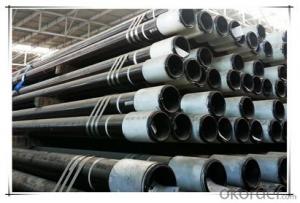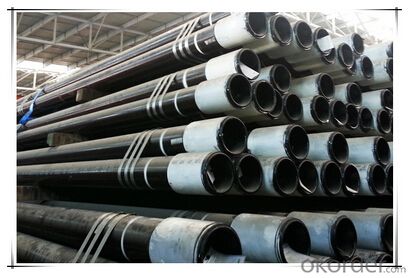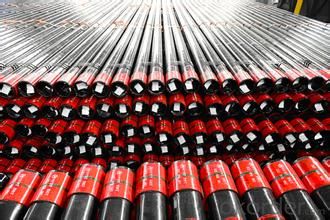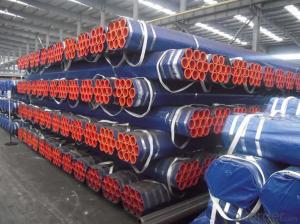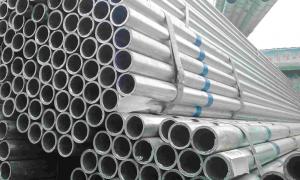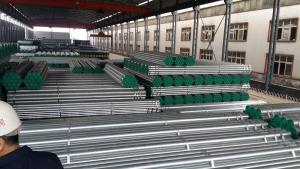H2S Anti Corrosion Cil Casing Tube
- Loading Port:
- China Main Port
- Payment Terms:
- TT or LC
- Min Order Qty:
- -
- Supply Capability:
- -
OKorder Service Pledge
OKorder Financial Service
You Might Also Like
Specifications
Economic products for anti- H2S+CO2+Cl corrosion oil casing
Steel Grades:BG80S-3Cr ,BG90S-3Cr
Anti- H2S+CO2+Cl corrosion oil casing
Products for anti- H2S corrosion
Steel Grades:BG80S,BG80SS,HS80S,HS80SS,BG95S,BG95SS,HS95S,HS95SS,BG110S,BG110SS,HS110S,HS110SS
Products for anti- CO2 corrosion
Steel Grades:L80-9Cr,L80-13Cr,BG55-1Cr,BG80-1Cr,BG90-1Cr,BG110-1Cr ,BG80-3Cr,BG90-3Cr,BG110-3Cr
Economic products for anti- H2S+CO2+Cl corrosion
Steel Grades:BG80S-3Cr ,BG90S-3Cr
Order Information | |||
Product |
| Material |
|
Standard | API, ASTM, EN, DIN, JIS | ||
Process Method | Cold drawn, Hot rolling | Deliver Condition | Annealing; BK, Normalizing, Quench, Tempering |
Outside Diameter |
| Wall Thickness |
|
Length | Max 13 meters | Pipes Ends | Plain, beveled, STC, LTC, BTC |
Destination |
| Unit Price | Send us pipes inquiry by mail. |
Surface | By varnish, anti-rusting black, polyethylene, galvanized coating, marking on the pipe | ||
Packing Ways | In hexagonal shape bundles wrapped with strong steel strip, a PVC bag, bundle with knitted plastic bag, wooden case, plastic cap, or according to customers' requests . | ||
Loading Quantity | Max 25-27 Metric Tons by one 20feet container. | ||
Delivery Time | Up to the order quantity or check whether has goods in stock or not. | ||
Application | Pipe is for low and medium pressure boiler, high pressure boiler, ship, liquid service, petroleum cracking, chemical fertilizer equipment, drawing-oil-equipment and structure purposes petrochemical industry, natural gas industry, environmental protection, pharmaceutical chemical, food machinery, water supply, architecture boiler heat exchangers, oil pipeline, pipe materials collar, Oil natural gas , industrial gas, water, oil transportation. | ||
FAQ of Anti Corrosion Cil Casing Tube:
①How is the quality of your products?
Our products are manufactured strictly according to national and internaional standard, and we take a test on every pipe before delivered out. If you want see our quality certifications and all kinds of testing report, please just ask us for it.
Guaranteed: If products’ quality don’t accord to discription as we give or the promise before you place order, we promise 100% refund.
②How about price?
Yes, we are factory and be able to give you lowest price below market one, and we have a policy that “ for saving time and absolutely honest business attitude, we quote as lowest as possible for any customer, and discount can be given according to quantity”,if you like bargain and factory price is not low enough as you think, just don’t waste your time.Please trust the quotation we would give you, it is professional one.
③Why should you chose us?
Chose happens because of quality, then price, We can give you both.Additionally, we can also offer professional products inquiry, products knowledge train(for agents), smooth goods delivery, exellent customer solution proposals.Our service formula: good quality+good price+good service=customer’s trust
SGS test is available, customer inspection before shipping is welcome, third party inspection is no problem.
Any question, pls feel free to contact us !
Anti Corrosion Cil Casing Tube Images
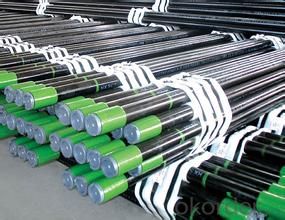
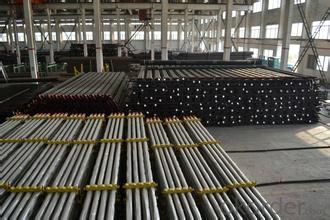
- Q: Can steel pipes be used for underground water lines?
- Yes, steel pipes can be used for underground water lines.
- Q: Can steel pipes be used for underground culverts?
- Yes, steel pipes can be used for underground culverts. Steel pipes are commonly used for underground culverts due to their strength, durability, and resistance to corrosion. They provide a reliable solution for conveying water or other fluids underground, ensuring efficient drainage and water management systems.
- Q: Can steel pipes be used for underground fire sprinkler systems?
- Yes, steel pipes can be used for underground fire sprinkler systems. Steel pipes are commonly used for their strength and durability, making them suitable for underground installations. However, it is important to ensure that the steel pipes are properly coated or protected against corrosion to maintain their integrity over time.
- Q: Theoretical weight of 25*25*1.5 square steel tubes
- Square steel tube, referred to as square tube, also known as square tube, is a square pipe of a kind of name, that is, the length of the same steel pipe. The strip is rolled by process. Generally, the strip is disassembled, leveled, crimped and welded to form a round tube. The tube is then rolled into square tubes and cut to the required length, usually 50 pieces per package.
- Q: What are the advantages of using steel pipes in the manufacturing industry?
- There are several advantages of using steel pipes in the manufacturing industry. Firstly, steel pipes are known for their high strength and durability, making them ideal for carrying heavy loads and withstanding harsh conditions. Secondly, steel pipes have excellent resistance to corrosion, reducing the risk of leaks and ensuring a longer lifespan. Additionally, steel pipes offer a wide range of sizes and shapes, allowing for flexibility in design and easy customization. Furthermore, steel pipes are cost-effective compared to other materials, as they require minimal maintenance and have a low risk of failure. Lastly, steel pipes are environmentally friendly, as they are fully recyclable and contribute to reducing carbon emissions during manufacturing. Overall, the advantages of using steel pipes in the manufacturing industry make them a reliable and efficient choice for various applications.
- Q: What are the different types of steel pipe supports for overhead piping?
- There are several types of steel pipe supports for overhead piping, including beam clamps, pipe hangers, clevis hangers, and riser clamps.
- Q: What are the factors to consider when selecting the right steel pipe for a specific application?
- When selecting the right steel pipe for a specific application, there are several factors to consider. These include the type of fluid or gas that will flow through the pipe, the temperature and pressure conditions of the application, the size and diameter requirements, the level of corrosion resistance needed, the cost and availability of the steel pipe, and any specific industry standards or regulations that must be followed.
- Q: What are the common applications of steel pipes?
- Steel pipes have a wide range of common applications in various industries including oil and gas transportation, plumbing systems, structural support in construction, irrigation systems, and industrial processes such as water and wastewater treatment.
- Q: How are steel pipes used in the construction of underground parking garages?
- Steel pipes are commonly used in the construction of underground parking garages for various purposes such as drainage, ventilation, and structural support. They are used as conduits for underground utilities, including water supply and sewage systems. Additionally, steel pipes are often used as piling or foundation elements to provide stability and support to the structure, especially in areas with challenging soil conditions. Overall, steel pipes play a crucial role in ensuring the functionality and durability of underground parking garages.
- Q: How are steel pipes used in bridge construction?
- Steel pipes are commonly used in bridge construction as piling or foundation elements. They are driven into the ground to provide support and stability to the bridge structure. Additionally, steel pipes can be used as structural members in the bridge's superstructure, such as for the construction of bridge piers or trusses, due to their high strength and durability.
Send your message to us
H2S Anti Corrosion Cil Casing Tube
- Loading Port:
- China Main Port
- Payment Terms:
- TT or LC
- Min Order Qty:
- -
- Supply Capability:
- -
OKorder Service Pledge
OKorder Financial Service
Similar products
Hot products
Hot Searches
Related keywords
